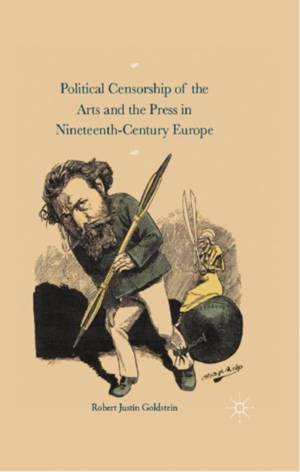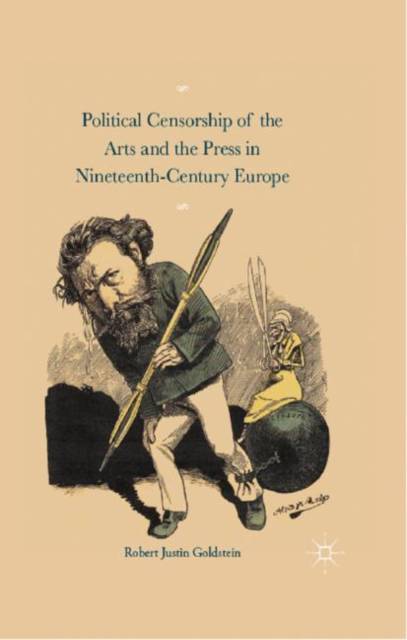
- Afhalen na 1 uur in een winkel met voorraad
- Gratis thuislevering in België vanaf € 30
- Ruim aanbod met 7 miljoen producten
- Afhalen na 1 uur in een winkel met voorraad
- Gratis thuislevering in België vanaf € 30
- Ruim aanbod met 7 miljoen producten
Zoeken
Political Censorship of the Arts and the Press in Nineteenth-Century
Robert Justin Goldstein
Hardcover | Engels
€ 259,45
+ 518 punten
Uitvoering
Omschrijving
Political Censorship of the Arts and the Press in Nineteenth-Century Europe presents a comprehensive account of the attempts by authorities throughout Europe to stifle the growth of political opposition during the nineteenth-century by censoring newspapers, books, caricatures, plays, operas and film. Appeals for democracy and social reform were especially suspect to the authorities, so in Russia cookbooks which refered to 'free air' in ovens were censored as subversive, while in England in 1829 the censor struck from a play the remark that 'honest men at court don't take up much room'. While nineteenth-century European political censorship blocked the open circulation of much opposition writing and art, it never succeeded entirely in its aim since writers, artists and 'consumers' often evaded the censors by clandestine circulation of forbidden material and by the widely practised skill of 'reading between the lines'.
Specificaties
Betrokkenen
- Auteur(s):
- Uitgeverij:
Inhoud
- Aantal bladzijden:
- 232
- Taal:
- Engels
Eigenschappen
- Productcode (EAN):
- 9780333463857
- Verschijningsdatum:
- 14/08/1989
- Uitvoering:
- Hardcover
- Formaat:
- Genaaid
- Afmetingen:
- 140 mm x 216 mm
- Gewicht:
- 494 g

Alleen bij Standaard Boekhandel
+ 518 punten op je klantenkaart van Standaard Boekhandel
Beoordelingen
We publiceren alleen reviews die voldoen aan de voorwaarden voor reviews. Bekijk onze voorwaarden voor reviews.











